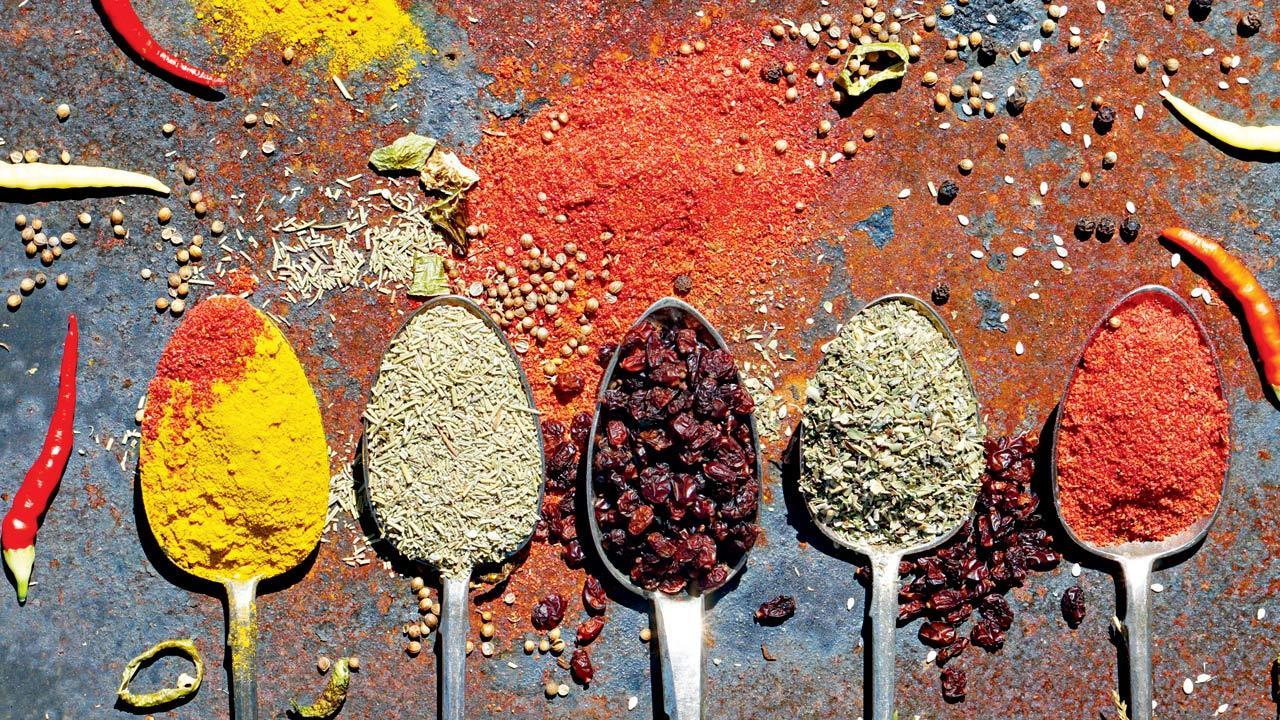It’s ridiculous how some foreign countries are beginning to question the quality of so many products made in India

Earlier this year, Singapore and Hong Kong suspended sales of spice blends from two major Indian brands, accusing them of using high levels of a pesticide called ethylene oxide. Representation pic
 Look, I would accept criticism if this was a foreign country questioning the government of Bihar about its ability to build a bridge. We all know they aren’t particularly good at that sort of thing even if we aren’t supposed to say it out loud. I would also accept criticism if it was directed towards the government of Gujarat, and it was asked for proof that a degree in Entire Political Science was offered to more than one student in Indian history. What I cannot abide are questions about the quality of things we take very seriously—our medicines and spices. That sort of thing should never be encouraged, and I hope the Prime Minister cancels his next photoshoot and nips this in the bud instead.
Look, I would accept criticism if this was a foreign country questioning the government of Bihar about its ability to build a bridge. We all know they aren’t particularly good at that sort of thing even if we aren’t supposed to say it out loud. I would also accept criticism if it was directed towards the government of Gujarat, and it was asked for proof that a degree in Entire Political Science was offered to more than one student in Indian history. What I cannot abide are questions about the quality of things we take very seriously—our medicines and spices. That sort of thing should never be encouraged, and I hope the Prime Minister cancels his next photoshoot and nips this in the bud instead.
My outrage on this issue has been building for a while because the past few years have not been kind to Indian manufacturers. In 2023, around 141 children reportedly died worldwide on account of medications made by some factories in India. This wouldn’t have been such a big deal under normal circumstances, given that we are a tolerant nation and have long been known to look the other way at the deaths of children. It crossed a line though, because some countries recommended that these factories be shut down for failing to meet compliance parameters. Naturally, I was appalled. If factories can be shut down for such frivolous reasons, there may come a time when we may have to impose quality control processes, and we all know how damaging they can be to important issues such as productivity and public relations.
Things were worse than I thought. I did a bit of research on the subject and found that, over the past two years, the World Health Organisation has issued six medical alerts for contaminated syrups. It estimates that 15 Indian companies are involved in their distribution. In America, an Indian company was even asked to pay a fine for price-fixing which is allegedly illegal in that country. It almost made me weep for the poor pharmaceutical industry and its lobbyists who, I assumed, would have to take home smaller bonuses on account of these awful accusations.
And then came the attacks on our food. Earlier this year, Singapore and Hong Kong suspended sales of spice blends from two major Indian brands, accusing them of using high levels of a pesticide called ethylene oxide. I had never heard of the stuff, so I assumed this just wasn’t true. Would our food taste as good if it had pesticides? It didn’t make sense. And yet, the Food and Drug Administration in America promptly launched its own investigation, followed by Australia and New Zealand. Luckily for us, local laws don’t insist on manufacturers testing spices for pesticides or carcinogens in the domestic market unless asked to by authorities. In other words, they will never be asked. It is only spices marked for exports that may have to be tested, going forward. I breathed a sigh of relief and said a silent prayer of thanks for our caring testing authorities.
Here’s my issue with these regulations: I believe they mollycoddle Indians. Allow me to explain. The fact is, we are a strong, robust nation because we are born into a country where life has always been cheap. From the moment we leave our mothers’ wombs, we are thrust into cities or villages where anything and everything can kill us. There are antibiotic-resistant superbugs in our hospitals, contaminated packets of milk and a complete disregard for hygiene that marks all the places we eat at from childhood onwards. We aren’t even safe when we aren’t eating or drinking because of crumbling infrastructure, absent traffic rules, and overcrowded public transport. And yet, it is this all-pervasive element of danger that makes us so resilient and allows some of us to thrive each year. Why, then, should the government attack our immune systems by bringing in pesky checks and balances where none have existed for decades?
There may be cause for hope though, if recent bills passed in Parliament are considered. In July 2023, for instance, two provisions of the Drugs & Cosmetics Act were reportedly decriminalised, which means drug manufacturers won’t have to face major consequences for selling us substandard products. Some may have to go to jail for up to three years, but others may only have to pay a huge fine of up to R5,000. Don’t let anyone tell you that life being cheap has no advantages.
When he isn’t ranting about all things Mumbai, Lindsay Pereira can be almost sweet. He tweets @lindsaypereira
Send your feedback to mailbag@mid-day.com
The views expressed in this column are the individual’s and don’t represent those of the paper
 Subscribe today by clicking the link and stay updated with the latest news!" Click here!
Subscribe today by clicking the link and stay updated with the latest news!" Click here!










